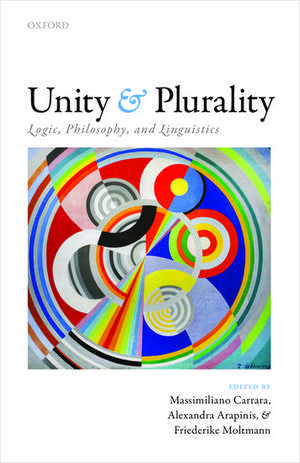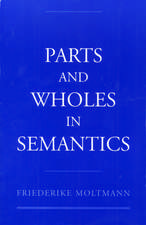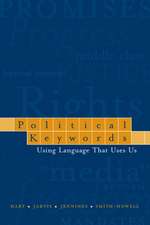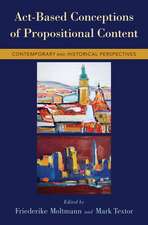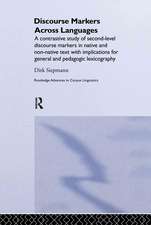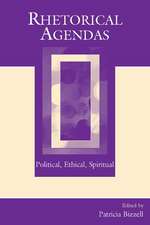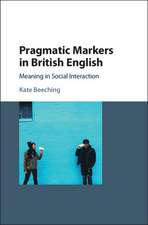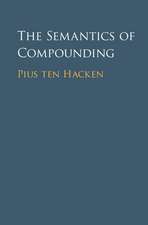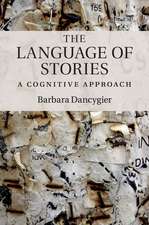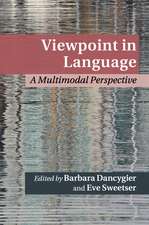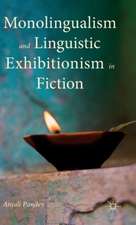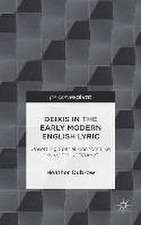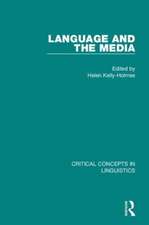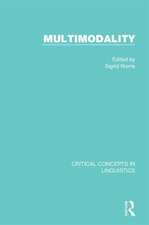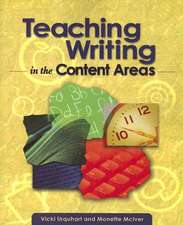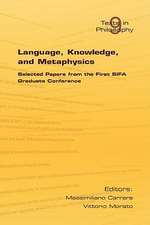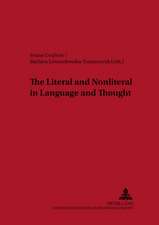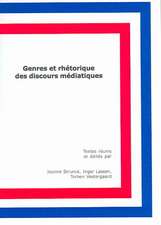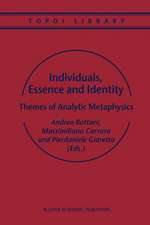Unity and Plurality: Logic, Philosophy, and Linguistics
Editat de Massimiliano Carrara, Alexandra Arapinis, Friederike Moltmannen Limba Engleză Hardback – 17 mar 2016
Preț: 468.71 lei
Preț vechi: 646.99 lei
-28% Nou
Puncte Express: 703
Preț estimativ în valută:
89.69€ • 97.73$ • 75.57£
89.69€ • 97.73$ • 75.57£
Carte tipărită la comandă
Livrare economică 12-18 aprilie
Preluare comenzi: 021 569.72.76
Specificații
ISBN-13: 9780198716327
ISBN-10: 019871632X
Pagini: 276
Dimensiuni: 177 x 241 x 22 mm
Greutate: 0.56 kg
Editura: OUP OXFORD
Colecția OUP Oxford
Locul publicării:Oxford, United Kingdom
ISBN-10: 019871632X
Pagini: 276
Dimensiuni: 177 x 241 x 22 mm
Greutate: 0.56 kg
Editura: OUP OXFORD
Colecția OUP Oxford
Locul publicării:Oxford, United Kingdom
Recenzii
Unity and Plurality successfully shows the importance of dealing with the phenomenon of plurals in logic, philosophy, and linguistics. It covers many of the fundamental debates concerning plurals and it provides accessible tools to venture further in those debates.
there is much to be learned from Unity & Plurality. The specialist in any of the fields represented will find thought-provoking developments but will also catch a glimpse of other disciplines involved in the study of plurals. The book stimulates fascinating comparisons, too. For instance, that pluralist approaches have found their way more easily into philosophy and philosophical logic -- rather than natural language semantics -- may be in itself food for thought.
Going beyond possible individuals, this promising line of research will also seek to take into account perspectivization and the role of the cognitive agent in determining what counts in a context as a plurality or a multitudeHow knowledge and subjectivity enter the realm of plurality is a question to which the papers in the book lead, thus renewing the debate in a long-standing tradition that, since Plato, has still not entirely grasped what pluralities are and can be.
there is much to be learned from Unity & Plurality. The specialist in any of the fields represented will find thought-provoking developments but will also catch a glimpse of other disciplines involved in the study of plurals. The book stimulates fascinating comparisons, too. For instance, that pluralist approaches have found their way more easily into philosophy and philosophical logic -- rather than natural language semantics -- may be in itself food for thought.
Going beyond possible individuals, this promising line of research will also seek to take into account perspectivization and the role of the cognitive agent in determining what counts in a context as a plurality or a multitudeHow knowledge and subjectivity enter the realm of plurality is a question to which the papers in the book lead, thus renewing the debate in a long-standing tradition that, since Plato, has still not entirely grasped what pluralities are and can be.
Notă biografică
Massimiliano Carrara is Associate professor of Logic and Philosophy of Language at the University of Padua (Italy). He is also Principal investigator of the COGITO Research centre in Philosophy, University of Bologna. He has been visiting professor at Columbia University (New York), at the ILLC (Institute for Logic, Language, and Computation), UVA (Amsterdam), at the Department of Philosophy, Delft, University of Technology, at the School of Philosophy of the University of Melbourne, and at the at the LOA-CNR (Trento, Italy). His main research interests are in logic, philosophy of logic, applied logic, and metaphysics.Alexandra Arapinis is Marie Curie Post-doctoral fellow at the Laboratory for Applied Ontology in Trento. She has received a PhD in Philosophy from Sorbonne University (Paris).Friederike Moltmann is research director at the Centre National de la Recherche Scientifique (CNRS) in France and senior visiting fellow in the philosophy department at New York University. Her research is in philosophy and linguistic semantics and especially the interface between the two. She is author of Parts and Wholes in Semantics (OUP, 1997) and Abstract Objects and the Semantics of Natural Language (OUP 2013).
